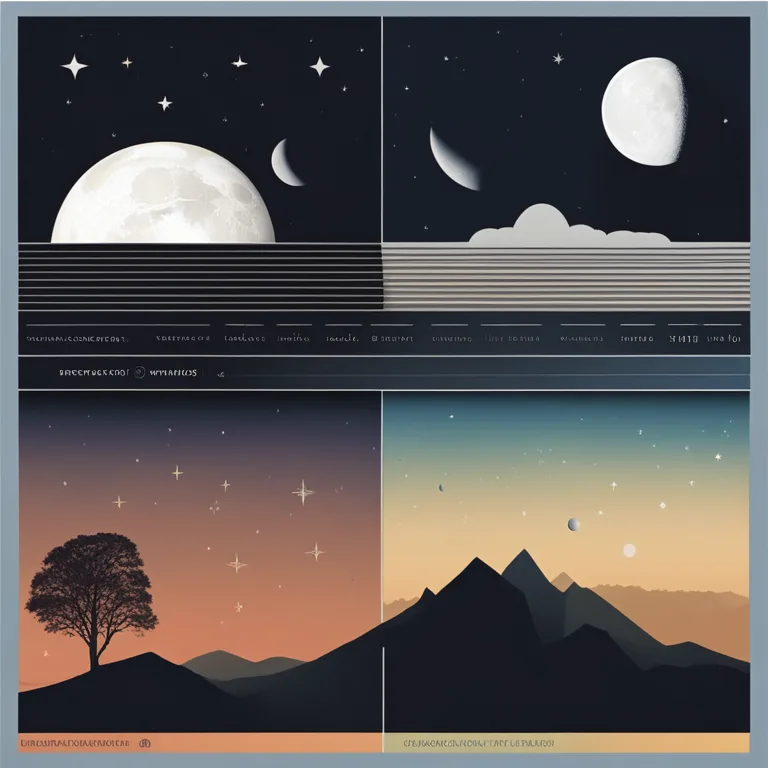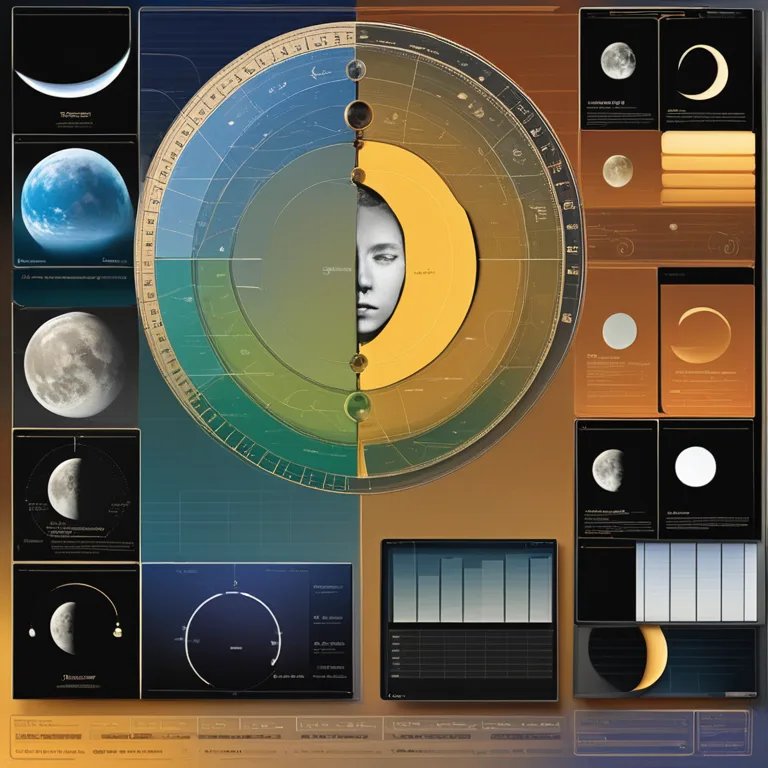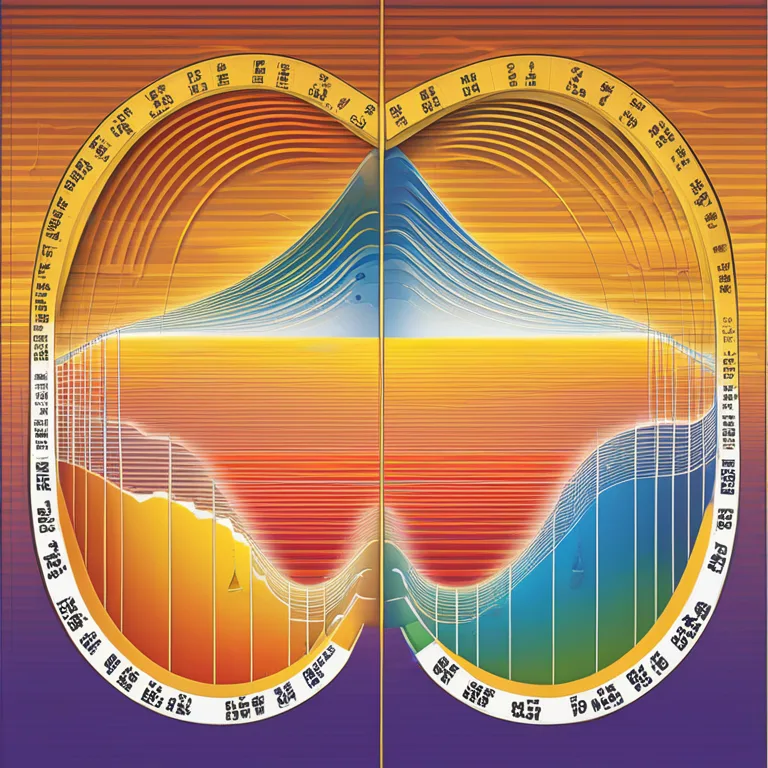
Biorhythms and Moon Phases: Syncing Life with Celestial Cycles
Delve into how lunar cycles intertwine with human biorhythms to affect your physical, emotional, and intellectual well-being.
article by Adrian Wallace
Introduction to Biorhythms and Lunar Influence
The concept of biorhythms suggests that our lives are influenced by natural physiological cycles. These cycles are thought to affect our physical, emotional, and intellectual capabilities. On the celestial front, the moon has long been associated with influencing human behavior and emotions. Modern enthusiasts believe that by understanding how the moon phases align with our biorhythms, we can optimize our lives for better health, relationships, and decision-making. This article will introduce you to the convergence of biorhythms and lunar cycles, guiding you through their potential impacts on day-to-day life.

Biorhythms: The Three Essential Cycles
Traditionally, biorhythms are divided into three fundamental cycles: the 23-day physical cycle, the 28-day emotional cycle, and the 33-day intellectual cycle. Each cycle fluctuates in a sine wave pattern, moving from a high phase (where one might perform at their peak) to a low phase (where one may face greater challenges). By charting these cycles, some believe you can anticipate periods of strength and vulnerability. As we step into 2024, high-tech applications and wearables are now offering more personalized biorhythm tracking, promising users insights to tune in to their body's natural rhythms.

Phases of the Moon: Lunar Connections
The moon goes through eight distinct phases each month, from the new moon to the full moon, and then back to the new moon. Each phase lasts roughly 3.5 days and has been associated culturally and astrologically with different energies and moods. For instance, the new moon is often seen as a time for new beginnings, while the full moon is connected to heightened emotions and the culmination of energy. How these phases correlate with individual biorhythms offers a twofold approach to wellness, bolstered by claims of synchronized rhythms leading to improved life management.

The Science and Skepticism
It's important to note that while the idea of biorhythms and moon phases holding sway over our lives is appealing, scientific support is limited. Skeptics argue that any perceived effects may be due to the placebo effect or confirmation bias, suggesting that people might see patterns when they want to. However, with growing interest in holistic and alternative practices, research into the subject continues. Wearable devices and apps are increasingly incorporating biorhythmic and lunar data, providing users with information that may hold personal significance regardless of scientific endorsement.

Practical Application of Biorhythm and Lunar Phase Knowledge
For those interested in applying this knowledge, the first step is monitoring one's own biorhythms and noting how they align with the lunar cycle. Potential applications include planning important events or activities during high phases of relevant cycles, or practicing self-care during predicted low phases. As we move beyond 2024, the integration of this knowledge aims to foster a closer connection between individuals' inner cycles and the external rhythms of nature, potentially leading to more harmonious living.
Embracing a Holistic Perspective
Even as debates over the efficacy of biorhythms and lunar phase alignment persist, embracing a holistic perspective on health and well-being continues to gain traction. The combined approach of tracking both biorhythms and lunar phases encourages a more attuned self-awareness, which can be beneficial regardless of scientific affirmation. Ultimately, whether or not one subscribes to the precise influence of these cycles, they serve as a reminder of our connection to the natural world and the cycles it encompasses.
Published: 12/28/2023
Modified: 12/28/2023
More predictions
Come back here soon to learn more about yourself and your future


The Synergy of Cycles: Biorhythm Compatibility
Discover the secrets of biorhythm compatibility and how it might influence personal connections in our comprehensive guide.


The Concept of Biorhythm Compatibility
Discover the concept of biorhythm compatibility and its role in personal relationships in this comprehensive guide.


Biorhythm: The Significance of Compatibility
Discover the significance of biorhythm compatibility in relationships and how syncing life cycles can impact partnership dynamics.